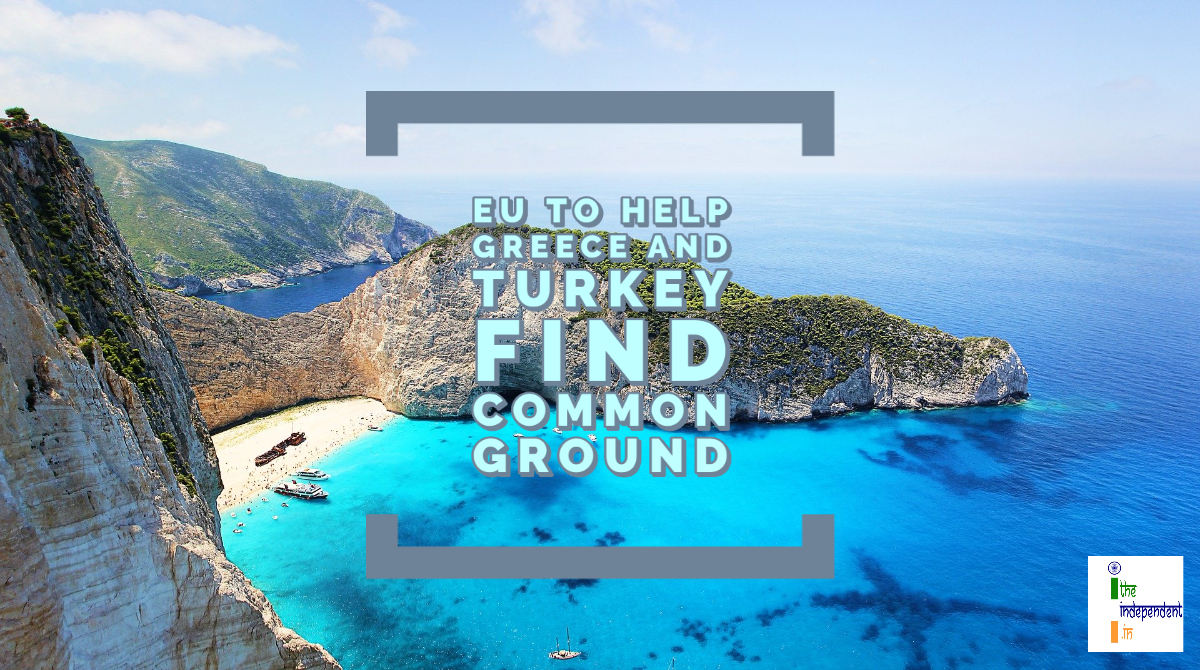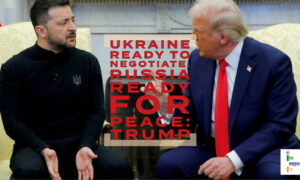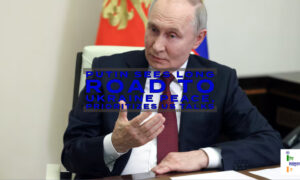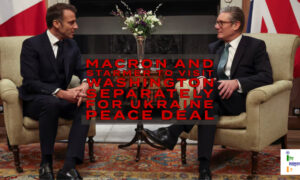
The European Council President – Charles Michel who visited Athens has said he is looking to rope in other nations as mediators to initiate a dialogue between Greece and Turkey over the exploration rights in the Mediterranean Sea.
The dispute is also on the agenda of upcoming EU Summit, which is scheduled to be held on September 24-25, 2020.
Speaking on the occasion, Michel said, “We are discussing the idea of a multilateral conference because, beyond bilateral dialogue, there is probably the need to bring the different countries to the table in order to deal with the different issues.”
Taking it to twitter, Michel tweeted, “In Athens to actively prepare the next #EUCO with prime minister @kmitsotakis @PrimeministerGR. Addressing the tensions in the Eastern Mediterranean is a priority for the EU. Our solidarity is with you. Our objective is clear: stability and security in the whole region.”
In Athens to actively prepare the next #EUCO with prime minister @kmitsotakis @PrimeministerGR
— Charles Michel (@eucopresident) September 15, 2020
Addressing the tensions in the Eastern Mediterranean is a priority for the EU.
Our solidarity is with you.
Our objective is clear: stability and security in the whole region. pic.twitter.com/FlGAX2XMB9
The Greek Prime Minister – Kyriakos Mitsotakis has also called for a European solidarity on the issue and has assured of healthy resolution provided Turkey end sits provocations in the region.
Addressing the media, Mitsotakis said, “Turkey still has time – ahead of and after the (EU) summit – to continue the first encouraging step of disengaging itself from this crisis.”
He further said, “If we have tangible proof and this (proof) is continued, we are ready to start immediately – I stress that, immediately – exploratory talks with Turkey regarding our only major dispute: the demarcation of maritime zones.”
Meanwhile, the Foreign Minister of Turkey – Mevlut Cavusoglu has said that said his country has been proposing to restart exploratory talks with Greece.
Talking about the dialogue, Mevlut said, “Exploratory talks actually cover all disputed issues between Turkey and Greece … The previous government [in Greece] … didn’t want to actually restart. And this government also has not been willing to restart the exploratory talks, so we have to make an agreement.”
For the records, Turkey and Greece have overlapping claims to areas of gas-rich waters in the Eastern Mediterranean. Greece says that each of its islands is entitled to its own continental shelf with exclusive drilling rights. There are thousands of such islands. The European Union (E.U.) also supports Greece. The E.U. had sanctioned Turkey for carrying out seismic surveys off the North Cypriot coast in July 2019. It has repeatedly warned Turkey against carrying out further exploration.
As a peninsula State, Turkey has more than 8,333 kilometres of coastline and the country has more than 462,000 square kilometres of potential maritime jurisdictional area. Greece argues that its islands in the Aegean Sea can generate their own Exclusive Economic Zones (EEZ) which would allow Greece to explore 200 nautical miles of sea water. Turkey says that islands cannot generate their own EEZs and that Greece’s EEZ should start from the mainland, rather than from the sprawl of hundreds of islands.
The EEZs are governed by the United Nations Convention on the Law of the Sea (UNCLOS) which was signed in 1982. Turkey has never signed the Treaty, although it has used certain principles from it to settle all maritime claims with the Black Sea states. Also, the United States (U.S.), Peru and Columbia have also not ratified UNCLOS agreement.
Recently, both countries have conducted series of military exercises in the seas between Cyprus and the Greek island of Crete. The trouble started when Turkey’s Oruc Reis vessel was accompanied by warships to search for gas and oil reserves. Later, the ship returned to port for maintenance. This move allowed Greece to open for dialogue.
Both Greece and Turkey are North Atlantic Treaty Organization (NATO) members. It also tried solving the dispute but couldn’t reach a solution.
Germany, which currently holds the EU’s rotating presidency, is likely to be the third country that will try to facilitate a dialogue and peaceful resolution to the dispute.







